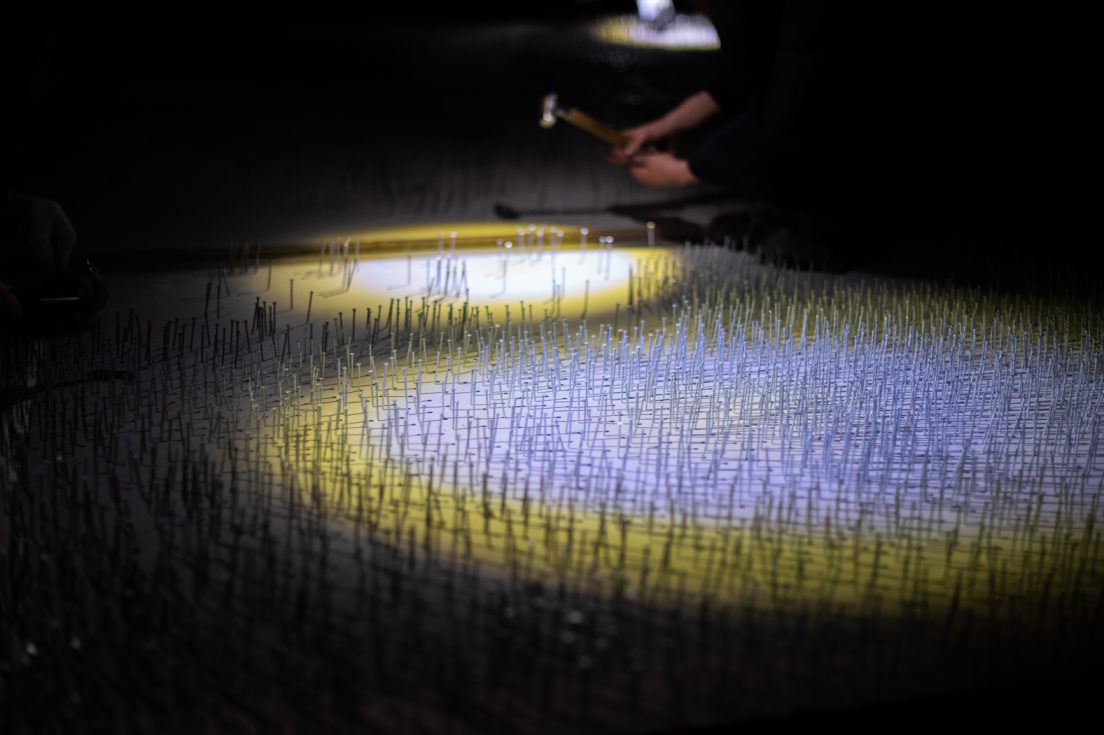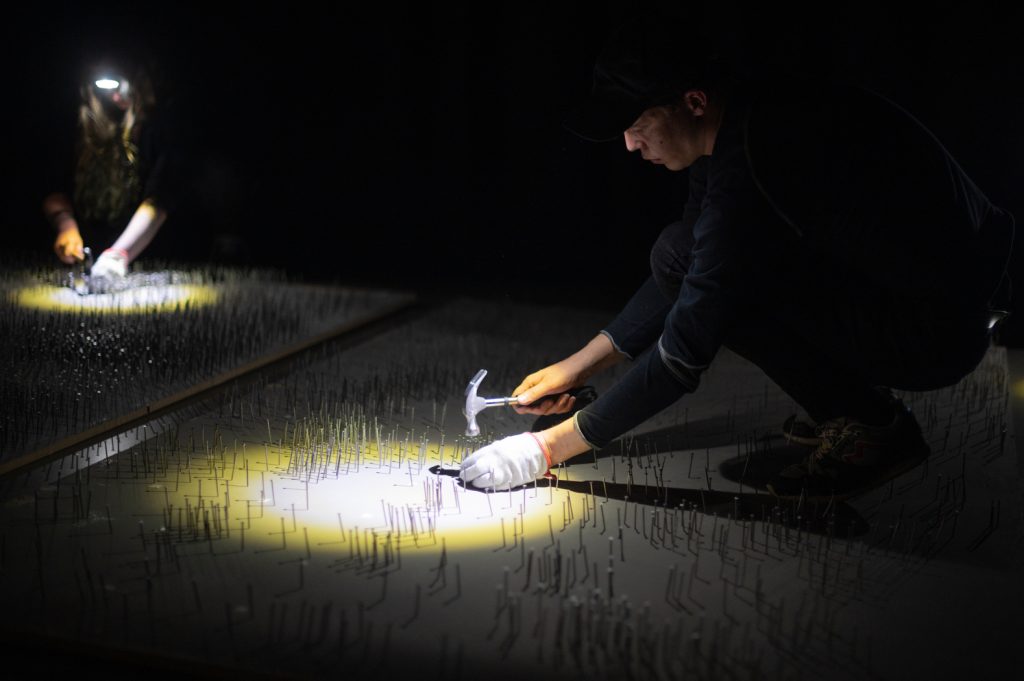The arts agency “Artscape” invited artists to break the silence in solidarity with earthquake-stricken Turkey and Syria

The earthquake that occurred in Turkey and Syria has claimed over 37,000 lives, and the number is still rising. On Monday evening, a solidarity event took place at the MO Museum, organized by the arts agency “Artscape” and the Goethe Institute, aiming to express support for the victims of the earthquake. Artists, activists, cultural, and humanitarian organizations gathered to encourage a collective dialogue.
According to the organizer of the event, Aistė Ulubey, the leader and founder of the Artscape arts agency, cultural organizations have significant power to bring social issues to the forefront. “Culture can be a bridge between society and raising issues. The involvement of culture, artists, and organizations is extremely meaningful and increases the visibility of important events. Such a gathering proves that cultural organizations, as a field, can be united, even though there may be fractures at the local level,” says A. Ulubey, emphasizing that we are still trying to comprehend and experience the extent and depth of the earthquakes in Syria and Turkey.
“Our duty as cultural institutions is to nurture and model a culture of care. A culture that cares about what is happening in the world, a culture that does not turn away but turns towards, even when the topics are difficult or painful. Therefore, it is gratifying that so many cultural institutions in Lithuania came together and showed their support,” says another organizer of the event, Anna Maria Strauß, the head of the Goethe Institute.
Performative Action: Nailed with 10,000 nails
Artists Barbora Matonytė, Denisas Kolomyckis, and Liudvikas Kesminas came together as the “.XYZ collective” for the event and opened the solidarity evening with a performative action. This became an invitation to show solidarity and draw attention to the consequences of the earthquake tragedy in Turkey and Syria, supporting the victims of this disaster.

“Speaking about cold statistical data, we raise the question of the limits of the intelligibility breakpoint. Is it a hundred? A thousand? Several thousand? Tens of thousands? – with a performative action, one of the artists, D. Kolomyckis, asked the audience when the suffering and losses of people become unimaginable, transforming into a numerical expression. – Art itself will not solve the problem, but it will fulfill its function – to draw attention, touch, and gather in solidarity.”
According to the authors of the performance, the goal and essence of this presentation are not the outcome; the most important aspect is the action itself. “Uncomfortable, uneasy, disruptive experience, raising the question of whether I can endure and sit through it. The topic is extremely painful, so the aim was to create discomfort that stimulates thought,” say the creators of the performance, L. Kesminas, B. Matonytė, and D. Kolomyckis.

During their performance, the artists, hammering nails into boards amidst the sounds of radio stations and audio waves, delivered a crucial message that a person is not just a number. The experience of the performative action immerses the audience into the abyss of chaos. Amidst the total sensory overload of sound and visuals, the pounding of hammers echoes in the chaos of lights, radio interference, the static of interrupted illegitimate calls, and indiscernible stage actions.
At the end of the performance, 10,000 nails were hammered into the boards.
What help is needed?
During the event, there was a discussion about how humanity, from various perspectives, reacts to tragedies like this one, how we can involve communities, and how we can respond and empathize with such tragedies.
Participants shared their personal experiences related to this tragedy and insights to understand how and why we react more sensitively to some disasters and less to others, how we embrace people from other cultures and their experiences, and the roles played by internal and foreign policies, media, collective memory, and more.

The discussion involved Farah Mohammed, a Syrian living in Lithuania and working as an educator in the arts agency “Artscape,” Eglė Murauskaitė, the Senior Researcher at the University of Maryland and security expert, Karolis Vyšniauskas, a journalist and one of the editors at NARA, and Luka Lesauskaitė, the Communications Manager of the Lithuanian Red Cross.

You can contribute to life-saving efforts in the affected countries by making a donation. You can do this by calling the short number 1485 or by transferring funds to the Lithuanian Red Cross account at SEB bank LT277044060000908211, specifying that the money is intended to support earthquake victims. Additionally, you can donate through the United Nations High Commissioner for Refugees (UNHCR) here.
The arts agency “Artscape” has been in operation since 2012. Its main goal is to provide opportunities for vulnerable societal groups to participate in culture and initiate social changes through high-quality art projects. The agency’s team engages in cultural and educational activities with vulnerable societal groups every day, and throughout the year, they present several high-value art productions to the public. Last year, “Artscape” was recognized as the winner of awards for social cohesion established by the Council of Europe Development Bank (CEB), selected from among 64 nominees.
February 21, 2023